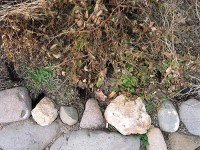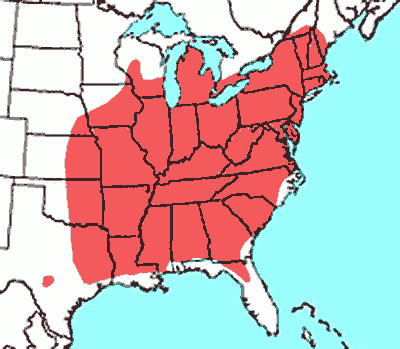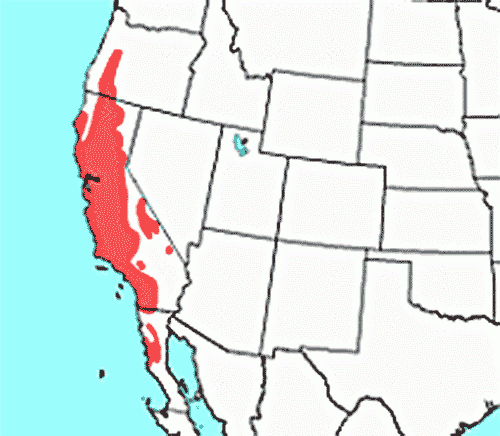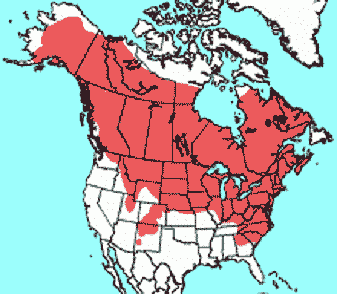 Notice the many burrow entrance holes at the edge of this planting bed. A Montane vole is responsible for this damage. It can cause both above and below ground type damage. |
The evidence of their presence resembles both above and below ground foraging vole activity. Voles such as the Prairie vole exhibit this characteristic. Prairie voles build well-defined runways above and below the ground. They may make the soil feel soft and spongy under foot by their tunneling activity under the ground and the mulch. They also make grassy runways in the turf. If they are mainly located within the planted mulched areas, then use the Mulch Covered Method of installation to set up the Vole Control Bait Station System, and if they are located mainly within the turf and tall grass areas then use the Tent Setup method of installation. You may want to read about both types of foraging activity to further educate yourself about the signs to look for in your planting beds and grassy areas.
Above Ground Foraging Voles |
Below Ground Foraging Voles |
You can learn more about species specific behavior of Both Above and Below Ground Foraging Voles by reading about the species located in your area as shown on the maps below. Remember, however, it is not usually necessary to identify the exact species of voles to gain control. Only the foraging category must be identified for proper set-up procedures (i.e. Both Above and Below Ground Foraging Voles). Once the foraging category is determined, it is important to do the SYSTEMATIC SEARCH to find the area of most prevalent vole activity. The SYSTEMATIC SEARCH will help you determine the number of Vole Control Bait Station Systems you will need and the optimal areas to place them.
Click on the maps below to learn about specific Both Above and Below ground vole species.
|
|
|
 Long-tailed Vole Distribution Long-tailed Vole Distribution |
|
|
 Montane Vole Distribution Montane Vole Distribution |
 Townsend's Vole Distribution Townsend's Vole Distribution |
| Distribution Maps From - National Museum of Natural History ©2004 Smithsonian Institution | ||


